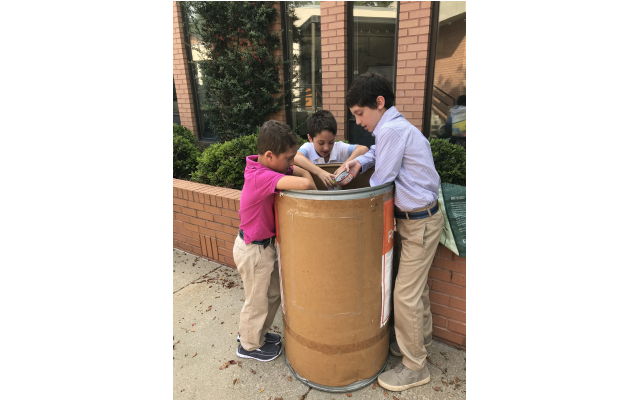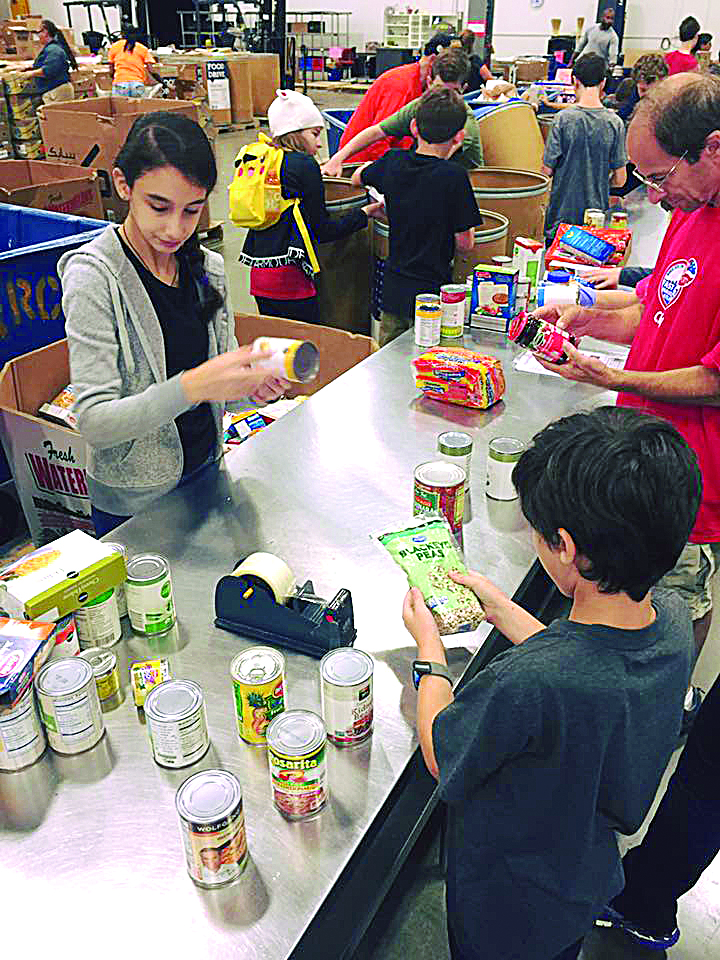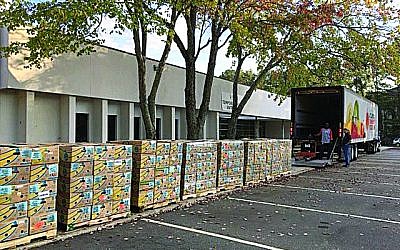From Hechsher to Home
Following the path of Operation Isaiah, have you ever wondered what happens to your canned goods?

Last week, 164 Operation Isaiah barrels were delivered to day schools, Jewish organizations, senior living facilities and synagogues across metro Atlanta in the hopes of surpassing last year’s record-breaking 169,124-pound donation. The food drive, running until Oct. 3, is in its 28th year.
While Atlanta’s Jewish community fills barrels with cans of green beans and boxes of matzah meal to feed families in North Georgia, AJT explored how one can of tuna progresses in nine steps from receiving a kosher label to being consumed in a kosher home.
Step One: A can of tuna receives a hechsher.
Kosher laws are clearly defined and absolute. Given the complexity of the laws, those who observe kosher laws rely on an accredited rabbinic organization to determine which foods are kosher. This standard can vary from person to person; that is why more than one kosher label exists. When a rabbi gives his stamp of approval, he is ensuring that the items produced meet kosher requirements.
Step Two: Packaged and shipped to grocers, the can of tuna is shelved in-store.
Next business day, ground shipping or local delivery. No matter how it’s shipped, kosher food is still kosher. The designation does not change in the process if the packaging is still intact.
Step Three: A shopper buys a can of tuna to donate to Operation Isaiah.
Look! Tuna is on sale at Costco. Buy that for Operation Isaiah.
Step Four: Any time during the Days of Awe, a family can donate that can of tuna (and much more) to an Operation Isaiah barrel.
Members of Ahavath Achim Synagogue, the founders of Operation Isaiah, collected more than 100,000 pounds of food in 2017 during the High Holidays. Nancy Cantor Weiner has been involved with Operation Isaiah since the beginning. Now the Operation Isaiah citywide coordinator, Weiner said her goal is to make the collection an event throughout Atlanta by engaging Jewish organizations, schools and all branches of Judaism to participate.
Weiner recalled when her children were small. “Michael was a year old and I have vivid memories of holding him in one arm and bags of donations in the other,” she said. “My husband and I feel it is vital to start showing children the importance of donating when they’re babies. Even a toddler can drop food into a barrel.”
Step Five: Operation Isaiah barrels are bursting with tuna. When the organization calls, Atlanta Food Bank picks up the barrel (and delivers more if needed).

Step Six: Atlanta Food Bank sorts, weighs and labels enormous boxes of food.
Each organization or synagogue is notified with the amount of food they donated, said Weiner. It’s a healthy competition, she said, laughing.
Step Seven: Jewish Family & Career Services leads volunteers in The Great Kosher Food Sort.
Although the Atlanta Food Bank does the majority of sorting from Monday to Saturday, Sunday afternoons are reserved for kosher sorting. Volunteers can sign up with children over the age of 8 throughout FITS (Families Inspired to Serve), an effort by JF&CS.

Step Eight: JF&CS stocks the kosher food pantry at its Dunwoody office.
JF&CS takes less than 15 percent of food collected through Operation Isaiah – it chose this amount – to stock the kosher food pantry. Last year that resulted in 11,000 pounds of food.
Sheri Schwartz of JF&CS said, “After the food bank delivers to JF&CS, they unload the pallets onto the sidewalk. Staff is ‘all hands on deck’ that day. It’s a great bonding experience. People bring dollies and run food back and forth between the sidewalk and the overflow area.”

Step Nine: A client chooses a can of tuna.
JF&CS tries to accommodate special diets, like gluten-free or nut allergies, but always offers protein to clients. Two things the kosher food pantry cannot keep on the shelves: canned salmon and kosher jelly. “We would love $10 grocery cards so our clients can buy fresh fruit and vegetables,” said Schwartz, adding that items from the JF&CS garden are often available.
Since Operation Isaiah began, the Jewish community has donated a cumulative 1 million pounds of food. “The majority of food doesn’t go to the Jewish community,” Weiner said. “Even the smallest communities receive help. What’s important to me is that, as Jewish people, we take care of our elderly, our sick, our addicted, our own, but we also take care of others. Food reaches beyond the scope of being Jewish.”



comments